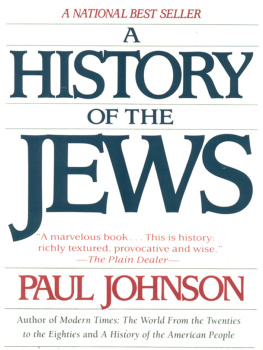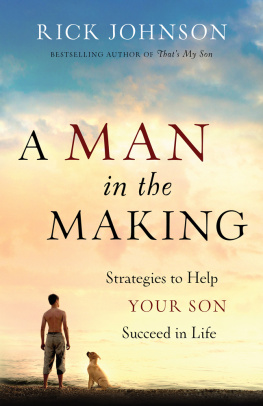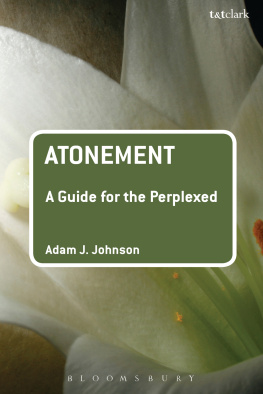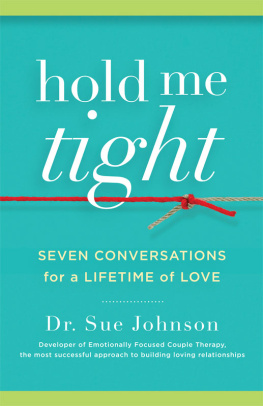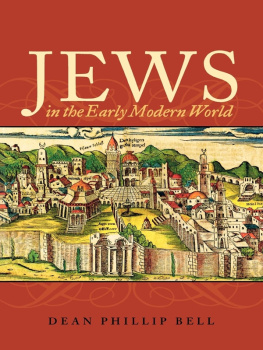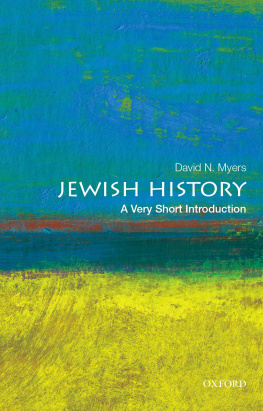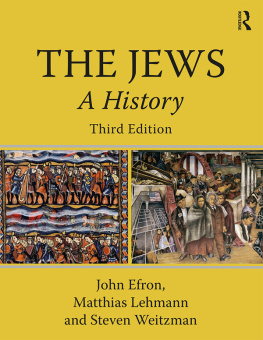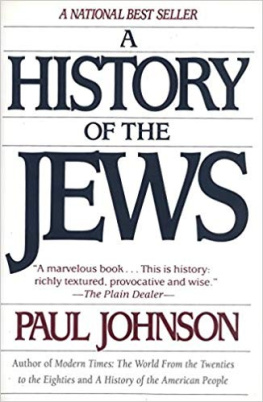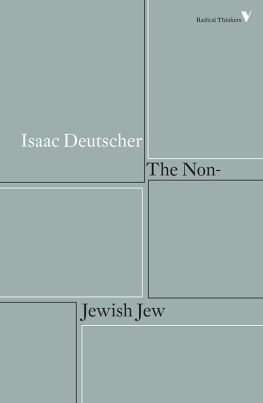Johnson - A History of the Jews
Here you can read online Johnson - A History of the Jews full text of the book (entire story) in english for free. Download pdf and epub, get meaning, cover and reviews about this ebook. City: New York, year: 1987, publisher: HarperCollins;Harper & Row, genre: Religion. Description of the work, (preface) as well as reviews are available. Best literature library LitArk.com created for fans of good reading and offers a wide selection of genres:
Romance novel
Science fiction
Adventure
Detective
Science
History
Home and family
Prose
Art
Politics
Computer
Non-fiction
Religion
Business
Children
Humor
Choose a favorite category and find really read worthwhile books. Enjoy immersion in the world of imagination, feel the emotions of the characters or learn something new for yourself, make an fascinating discovery.
A History of the Jews: summary, description and annotation
We offer to read an annotation, description, summary or preface (depends on what the author of the book "A History of the Jews" wrote himself). If you haven't found the necessary information about the book — write in the comments, we will try to find it.
A History of the Jews — read online for free the complete book (whole text) full work
Below is the text of the book, divided by pages. System saving the place of the last page read, allows you to conveniently read the book "A History of the Jews" online for free, without having to search again every time where you left off. Put a bookmark, and you can go to the page where you finished reading at any time.
Font size:
Interval:
Bookmark:

A HISTORY OF THE JEWS
PAUL JOHNSON

This book is dedicated
to the memory of
Hugh Fraser,
a true Christian gentleman
and lifelong friend of the Jews
Why have I written a history of the Jews?
The Jews are the most tenacious people in history. Hebron
Among the first group of the elite forced into Babylonian
In the year 1168 an exceptionally observant Jewish traveller from
The great Sephardi diaspora, from Spain in 1492, from Portugal
On 31 July 1817 a precocious twelve-year-old boy
On 9 November 1914, in a speech at Londons Guildhall
The Holocaust and the new Zion were organically connected. The
In his Antiquities of the Jews, Josephus describes Abraham as
Why have I written a history of the Jews? There are four reasons. The first is sheer curiosity. When I was working on my History of Christianity , I became aware for the first time in my life of the magnitude of the debt Christianity owes to Judaism. It was not, as I had been taught to suppose, that the New Testament replaced the Old; rather, that Christianity gave a fresh interpretation to an ancient form of monotheism, gradually evolving into a different religion but carrying with it much of the moral and dogmatic theology, the liturgy, the institutions and the fundamental concepts of its forebear. I thereupon determined, should opportunity occur, to write about the people who had given birth to my faith, to explore their history back to its origins and forward to the present day, and to make up my own mind about their role and significance. The world tended to see the Jews as a race which had ruled itself in antiquity and set down its records in the Bible; had then gone underground for many centuries; had emerged at last only to be slaughtered by the Nazis; and, finally, had created a state of its own, controversial and beleaguered. But these were merely salient episodes. I wanted to link them together, to find and study the missing portions, assemble them into a whole, and make sense of it.
My second reason was the excitement I found in the sheer span of Jewish history. From the time of Abraham up to the present covers the best part of four millennia. That is more than three-quarters of the entire history of civilized humanity. I am a historian who believes in long continuities and delights in tracing them. The Jews created a separate and specific identity earlier than almost any other people which still survives. They have maintained it, amid appalling adversities, right up to the present. Whence came this extraordinary endurance? What was the particular strength of the all-consuming idea which made the Jews different and kept them homogeneous? Did its continuing power lie in its essential immutability, or its capacity to adapt, or both? These are sinewy themes with which to grapple.
My third reason was that Jewish history covers not only vast tracts of time but huge areas. The Jews have penetrated many societies and left their mark on all of them. Writing a history of the Jews is almost like writing a history of the world, but from a highly peculiar angle of vision. It is world history seen from the viewpoint of a learned and intelligent victim. So the effort to grasp history as it appeared to the Jews produces illuminating insights. Dietrich Bonhoeffer noticed this same effect when he was in a Nazi prison. We have learned, he wrote in 1942, to see the great events of world history from below, from the perspective of those who are excluded, under suspicion, ill-treated, powerless, oppressed and scorned, in short those who suffer. He found it, he said, an experience of incomparable value. The historian finds a similar merit in telling the story of the Jews: it adds to history the new and revealing dimension of the underdog.
Finally the book gave me the chance to reconsider objectively, in the light of a study covering nearly 4,000 years, the most intractable of all human questions: what are we on earth for? Is history merely a series of events whose sum is meaningless? Is there no fundamental moral difference between the history of the human race and the history, say, of ants? Or is there a providential plan of which we are, however humbly, the agents? No people has ever insisted more firmly than the Jews that history has a purpose and humanity a destiny. At a very early stage in their collective existence they believed they had detected a divine scheme for the human race, of which their own society was to be a pilot. They worked out their role in immense detail. They clung to it with heroic persistence in the face of savage suffering. Many of them believe it still. Others transmuted it into Promethean endeavours to raise our condition by purely human means. The Jewish vision became the prototype for many similar grand designs for humanity, both divine and man-made. The Jews, therefore, stand right at the centre of the perennial attempt to give human life the dignity of a purpose. Does their own history suggest that such attempts are worth making? Or does it reveal their essential futility? The account that follows, the result of my own inquiry, will I hope help its readers to answer these questions for themselves.
The Jews are the most tenacious people in history. Hebron is there to prove it. It lies 20 miles south of Jerusalem, 3,000 feet up in the Judaean hills. There, in the Cave of Machpelah, are the Tombs of the Patriarchs. According to ancient tradition, one sepulchre, itself of great antiquity, contains the mortal remains of Abraham, founder of the Jewish religion and ancestor of the Jewish race. Paired with his tomb is that of his wife Sarah. Within the building are the twin tombs of his son Isaac and his wife Rebecca. Across the inner courtyard is another pair of tombs, of Abrahams grandson Jacob and his wife Leah. Just outside the building is the tomb of their son Joseph. This is where the 4,000-year history of the Jews, in so far as it can be anchored in time and place, began.
Hebron has great and venerable beauty. It provides the peace and stillness often to be found in ancient sanctuaries. But its stones are mute witnesses to constant strife and four millennia of religious and political disputes. It has been in turn a Hebrew shrine, a synagogue, a Byzantine basilica, a mosque, a crusader church, and then a mosque again. Herod the Great enclosed it with a majestic wall, which still stands, soaring nearly 40 feet high, composed of massive hewn stones, some of them 23 feet long. Saladin adorned the shrine with a pulpit. Hebron reflects the long, tragic history of the Jews and their unrivalled capacity to survive their misfortunes. David was anointed king there, first of Judah ( II Samuel 2:1-4), then of all Israel ( II Samuel 5:1-3). When Jerusalem fell, the Jews were expelled and it was settled by Edom. It was conquered by Greece, then by Rome, converted, plundered by the Zealots, burned by the Romans, occupied in turn by Arabs, Franks and Mamluks. From 1266 the Jews were forbidden to enter the Cave to pray. They were permitted only to ascend seven steps by the side of the eastern wall. On the fourth step they inserted their petitions to God in a hole bored 6 feet 6 inches through the stone. Even so, the petitioners were in danger. In 1518 there was a fearful Ottoman massacre of the Hebron Jews. But a community of pious scholars was re-established. It maintained a tenuous existence, composed, at various times, of orthodox Talmudists, of students of the mystic kabbalah, and even of Jewish ascetics, who flogged themselves cruelly until their blood spattered the hallowed stones. Jews were there to welcome, in turn, the false Messiah, Shabbetai Zevi, in the 1660s, the first modern Christian pilgrims in the eighteenth century, secular Jewish settlers a hundred years later, and the British conquerors in 1918. The Jewish community, never very numerous, was ferociously attacked by the Arabs in 1929. They attacked it again in 1936 and virtually wiped it out. When Israeli soldiers entered Hebron during the Six Day War in 1967, for a generation not one Jew had lived there. But a modest settlement was re-established in 1970. Despite much fear and uncertainty, it has flourished.
Font size:
Interval:
Bookmark:
Similar books «A History of the Jews»
Look at similar books to A History of the Jews. We have selected literature similar in name and meaning in the hope of providing readers with more options to find new, interesting, not yet read works.
Discussion, reviews of the book A History of the Jews and just readers' own opinions. Leave your comments, write what you think about the work, its meaning or the main characters. Specify what exactly you liked and what you didn't like, and why you think so.

